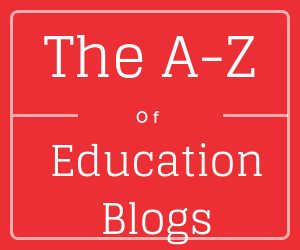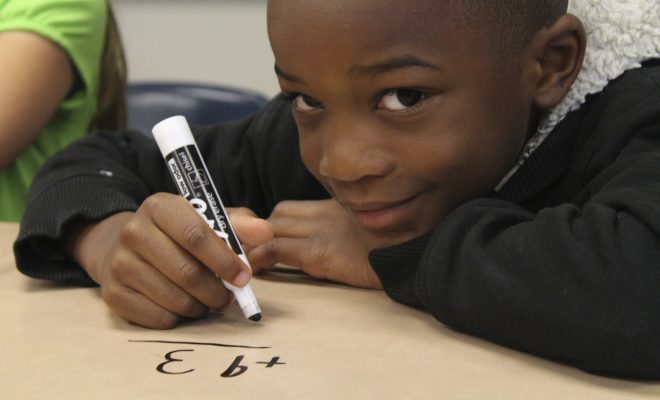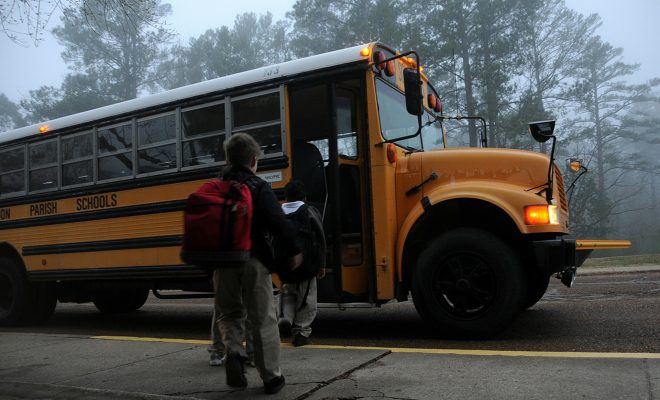Pass or Fail: Does our Education System Set Kids Up to Fail?

In this multi-part series, I provide a dissection of the phenomenon of retention and social promotion. Also, I describe the many different methods that would improve student instruction in classrooms and eliminate the need for retention and social promotion if combined effectively.
While reading this series, periodically ask yourself this question: Why are educators, parents and the American public complicit in a practice that does demonstrable harm to children and the competitive future of the country?
What if I told you that all retention issues in American K-12 schools are a failure of the system, not the individual children?
A week before the end of eighth grade, Ted Hamm’s mother was informed that her son was going to be held back. She didn’t have any inkling that this was a possibility; according to her, Ted had always performed well in the classroom. “I mean he was always an A and B student,” she commented. “I knew his reading level was low, but not what [the teacher] claimed it was.” However, low standardized testing scores and low grades in the key areas of reading and math combined, keep Ted from advancing. According to Ms. Hamm, the effect on Ted was immediate.
“Before being retained, he socialized with his friends like normal,” she said. “After Ted was retained, he didn’t want to go to school. He was very withdrawn.”
The problems grew more serious. Ted became depressed and isolated. He stopped hanging out with other students at school and stopped inviting friends to his house. Eventually, Ms. Hamm had him transferred to another school. “I was hurt,” she said. “I felt like he would feel that he failed. Failed, you know, like he was not smart enough and like he would be laughed at.”
Ms. Hamm’s intervention and active involvement in her son’s education were eventually successful. Ted Hamm thrived in the new school and managed to get on the honor roll.
Ted Hamm was lucky. His mother was involved and willing to intervene to try to bolster his chances of success. Many other students are not so fortunate. In fact, in United States urban school settings, the retention rate is estimated to be almost 50 percent. The costs of retention are astronomical: around $20 billion each year, and the rewards are dubious.
Public educators, students, and parents alike find retention and social promotion policies bewildering. Educators often have a difficult time understanding when and how to employ the policies, and like Ted Hamm and his mother, students and parents are often confounded by the strategies. The prospect of retention sends many students into a panic or depression, and their parents are often at a loss as to how to respond.
As a public service, America’s education system sets high standards for itself. However, the nature of those standards and where retention and social promotion fit in are contentious subjects, and the issues remain unresolved.
The public education system in America has received attention from many reformers throughout history. Many have worked hard to improve the effectiveness of the system, but we’ve still not achieved much that’s conclusively better. In fact, there’s been moderate success at best, and the research we have is full of holes. Reformers have found, developing an effective public education system is not without pitfalls. The biggest challenges center on vague statements of purpose, insubstantial models for classroom management and teaching, faulty assessment objectives and methods, and difficulties identifying procedures that offer optimal support to all students.
Although retention and social promotion are often implemented at the expense of the students involved, they’ve been a consistent trend in public education practice for quite some time. At the present juncture, most stakeholders have accepted the need to end these particular policies. They are keen to see these strategies replaced with well-thought-out, thoroughly researched strategies that will reduce the chaos and stress. The question now becomes how do we replace our current system? Do you think altering the current pass/fail structure in public schools is even remotely possible?
The existing education system almost always emerges as the biggest single obstacle to educational reform, which is both ironic and frustrating. Yet, it did not become a barrier by happenstance: the current American educational system has been designed from the ground up to support retention and social promotion policies. What most educators come back to is the question of whether a one-size-fits-all graded approach can ever be suitable for all students. The issue is complicated and has support on both sides of the coin, but recent research has exposed the problems of this uniform method.
At various points in the history of American public education, we’ve seen different facets of the “graded” system accentuated. Some would argue that the focus of the public education system has always been more on social issues and goals than on the students. Others claim that students from disadvantaged backgrounds tend to not receive adequate support in school and thus get caught up in the retention versus social promotion problem more easily than students who come from privileged backgrounds.
In fact, social parameters like family income, ethnic background, and even family structure appear to have a sizable impact on the risk or likelihood of retention or social promotion in schools. It’s fairly easy to demonstrate that students from low-income households and students with other disadvantaged backgrounds tend to be the ones most dramatically impacted by grade retention or social promotion. Not surprisingly, they also tend to be the students for whom the question “to retain or not retain?” is particularly relevant.
At the same time, the social issues and goals of the public education system have always tried to target opportunities to those children who come from affluent families. The wealthier the school district, the better the resources available to educate students. The better the resources available, the more likely it is that affluent families will support the neighborhood and make a home there, contributing their wealth and committing long-term.
Certain critics have suggested that the American education system was founded in an age when education was still considered to be relatively restricted, with only academically talented individuals having the chance to move much beyond the basic levels. Are the original goals of the American public education system still relevant to modern times?
Many educators and other stakeholders wonder what the goal of public education ought to be in today’s world. What type of education do our children need in this day and age? More importantly, how should the public education system go about achieving said goals?






